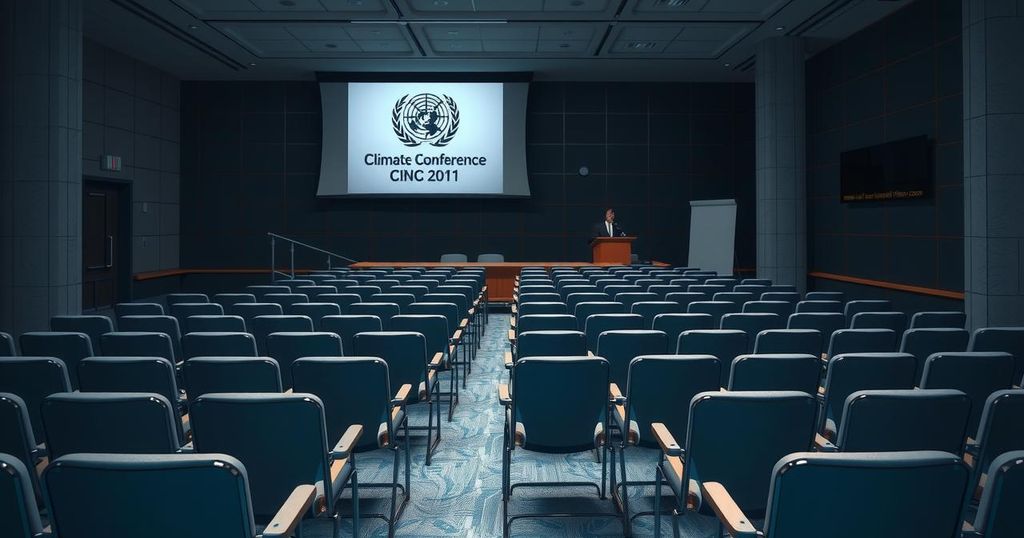COP30 CEO Highlights Limitations of Climate Summits and Calls for Year-Round Action

COP30’s CEO, Ana Toni, emphasizes that COP summits are not the ultimate solution to climate change. She stresses the need for year-round action beyond UN talks, calling for involvement from various sectors and the necessity of ambitious climate plans. Despite lofty promises, emissions are still rising, leading to skepticism about the effectiveness of these conferences.
The CEO of COP30, set to take place in Brazil this November, has emphasized the unrealistic expectations that surround the annual COP climate summits. Ana Toni, Brazil’s National Secretary for Climate Change, stated at a Chatham House conference that climate action must occur throughout the year and not solely within the confines of UN negotiations.
Toni pointed out that COP meetings are not “silver bullets”, asserting that the anticipation of significant outcomes from these events fails to recognize the ongoing nature of climate change mitigation. She advocated for immediate implementation of climate actions, highlighting the vital contributions of the private sector and local governance.
Furthermore, she noted a limitation of COPs: the absence of key decision-makers, such as finance and transport ministers, who influence major climate policies. Toni called for a broader engagement beyond the Paris Agreement framework to involve all relevant sectors in climate governance.
COP30 is also addressing logistical issues; the Brazilian government has decided to allow speakers prior to the conference in order to ease preparations. The backdrop of this summit includes commitments made at COP29, where a $300 billion annual finance target by 2035 was agreed upon, yet notable inconsistencies persist, such as the UK’s recent aid budget cuts despite previous commitments.
Despite expectations set by COP26 and COP28 leaders, including declarations aimed at marking significant progress on climate change, global greenhouse gas emissions continue to rise. These ongoing trends raise doubts among climate activists about the effectiveness of the UN climate summits.
UK climate envoy Rachel Kyte, echoing Toni’s concerns, remarked that governments have historically been slow to act since the Paris Agreement, reflecting a lack of substantial effort towards the sustainable financing goals outlined therein. For COP30, Brazil’s leadership will focus on urging nations to enhance their annual climate targets and develop a roadmap aimed at mobilizing $1.3 trillion per year for climate initiatives in the developing world by 2035.
In conclusion, COP30 leaders stress the need for continuous climate action beyond the annual summits, acknowledging that these meetings do not hold all the answers. With the emphasis on cooperation among private sectors and local governments, as well as the imperative of securing more aggressive climate finance commitments, the path ahead seeks to ensure tangible progress in combating climate change, especially in developing nations.
Original Source: www.climatechangenews.com






